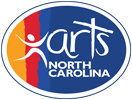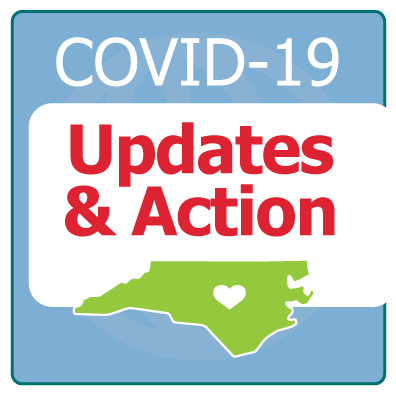Pandemic Relief for the Arts in the CARES Act

On Friday, March 27th, the US House of Representatives passed, and President Trump signed into law, the Coronavirus Aid, Relief, and Economic Security Act (CARES Act), an unprecedent and historic $2 Trillion pandemic relief package with many provisions that will help arts nonprofits who are struggling as well as artists and arts workers who are unemployed as a result of COVID-19. This law will provide forgivable Small Business Administration loans for struggling non-profit arts organizations and independent artists, as well as $75 million of emergency funding available through the National Endowment for the Arts. A massive expansion of unemployment benefits that would put up to $950 per week into the pockets of many North Carolinians (including self-employed and contract workers such as independent artist) and increases the period that someone can receive benefits from 12 weeks to 25 weeks.
Additional information about provisions in the CARES Act that effect nonprofits and the issues the NC nonprofit sector will be addressing with the NC General Assembly can be found at the NC Center for Nonprofits.
The incredible struggles that will be caused by the COVID-19 pandemic will be incredibly difficult for the arts sector, for the nation, and for the world. Government cannot solve these problems for us. Government will only be able to solve them WITH US. If we are going to work together, we will need to communicate. That communication is called advocacy. That is what will need to do in the coming weeks to be sure we have a vibrant future for the arts in North Carolina.
Pandemic Relief for the Arts in North Carolina from the
Coronavirus Aid, Relief, and Economic Security Act (CARES Act)
This information was last updated on March 29, 2020 with input from the North Carolina Arts Council.
National Endowments for the Arts Pandemic Relief Funding
• National Endowments for the Arts will receive $75 million to be distributed for pandemic relief
• NEA will allocate 40% of funds to State Arts Agencies (NCAC estimated to receive approx. $500,000)
• The other 60% will be for direct grants to organizations and may be used for General operations
• There is no requirement to find matching dollars for these funds
Small Business Administration Loans (Paycheck Protection Program)
Eligible entities include: small businesses (under 500 employees), 501(c)3 nonprofits, and “sole-proprietors, independent contractors, and other self-employed individuals”
• Must have been active with employees on payroll (or paid independent contractors) as of February 15, 2020
• Proof of repayment ability is not required, but must make a good faith certification that the loan is necessary due to the uncertainty of current economic conditions caused by COVID-19 — “limited to companies that have seen their business dry up or stop completely due to COVID-19”
Organizations are eligible for loans equal to 2.5 times the amount of an average monthly payroll, up to $10 million, at 4% interest for any amount of the loan that does not qualify for forgiveness. The related expenses may be incurred between February 15 and June 30, 2020, and maximum maturity of the loan is 10 years.
These loans (either the full principal or part of the principal) can be forgiven under the following conditions:
• If the loan is used for payroll (including salaried employees, contractors, and earnings from self-employment), paid sick or medical leave, insurance premiums, and mortgage, rent, and utility payments;
• If those eligible expenses are paid during the 8-week period after origination of the loan;
• If the small business does not significantly reduce its workforce during the forgiveness window. “The amount forgiven will be reduced proportionally by any reduction in employees retained compared to the prior year and reduced by the reduction in pay of any employee beyond 25 percent of their prior year compensation… borrowers that re-hire workers previously laid off will not be penalized for having a reduced payroll at the beginning of the period. “
• Eligible payroll costs do not include compensation above $100,000 in wages.
• Much of the SBA’s usual paperwork will be waived in order to speed loan disbursement. Documentation of covered expenses will only be required after the fact, upon request for loan forgiveness.
PLEASE NOTE: SBA Paycheck Protection Program Loans will be administered through qualified SBA lenders. Arts NC encourages those interested in applying for these loans to contact your bank to see if they are a qualified lender, and to seek further consultation from your bank or a qualified lender.
Organizations may also apply for an Economic Injury Disaster Loan (EIDL) of up to $2 million through the Small Business Administration, which can be paid back over 30 years at a rate of 2.75% for nonprofits (3.75% for-profit). Those applying for an EIDL may also apply for up to a $10,000 EIDL Grant that would be issued within three days of the application being received and which would be forgiven if used for certain expenses, even if the initial EIDL application is not approved. While an organization may receive both EIDL and Payroll Protection Program (PPP) loans, they cannot be used for the same expenses. It is not required that an EIDL be accepted once approved. The $10,000 grant from EIDL can also be subtracted from the forgiven amount of a PPP loan.
Unemployment Insurance Provisions (Relief for Workers Affected by Coronavirus Act)
Pandemic Unemployment Assistance
Program through December 31, 2020 to provide payment to those not traditionally eligible for unemployment benefits (self-employed, independent contractors, those with limited work history, and others) who are unable to work as a direct result of the coronavirus public health emergency.
Emergency Increase in Unemployment Compensation Benefits
Provides an additional $600 per week payment to each recipient of unemployment insurance or Pandemic Unemployment Assistance for up to four months. In North Carolina, the maximum weekly benefit is $350 per week, meaning that unemployed NC workers could receive between $600 and $950 in weekly benefits.
Temporary Full Federal Funding of the First Week of Compensable Regular Unemployment for States with No Waiting Week
Provides funding to pay the cost of the first week of unemployment benefits through December 31, 2020 for states that choose to pay recipients as soon as they become unemployed instead of waiting one week before the individual is eligible to receive benefits.
Pandemic Emergency Unemployment Compensation
Provides an additional 13 weeks of unemployment benefits through December 31, 2020 to help those who remain unemployed after weeks of state unemployment benefits are no longer available. In North Carolina, you can collect benefits for a maximum of 12 weeks, meaning that unemployed NC workers would now receive up to 25 weeks of benefits.
Emergency Unemployment Relief for Governmental Entities and Nonprofit Organizations
Provides payment to states to reimburse nonprofits, government agencies, and Indian tribes for half of the costs they incur through December 31, 2020 to pay unemployment benefits.
Emergency State Staffing Flexibility
Provides states with temporary, limited flexibility to hire temporary staff, rehire former staff, or take other steps to quickly process unemployment claims.
PLEASE NOTE: If you are unemployed as a result of the COVID-19 pandemic, you can find more information and apply for benefits from the NC Department of Employment Security at: des.nc.gov/covid-19-information.
(Limited) Universal Charitable Deduction
• Temporary, above-the-line deduction for total charitable contributions, which would be capped at $300.
• Incentive applies to contributions made in 2020 and would be claimed on tax forms next year.
• Will encourage charitable contributions through the economic challenges in the coming months
Other Arts-Centric Pandemic Relief Funding
• $75 million for National Endowment for the Humanities (NEH)
• $50 million for Institute for Museum and Library Services (IMLS)
• $25 million for Kennedy Center for the Performing Arts
• $7.5 million for Smithsonian Institute
• $75 million for Corporation for Public Broadcasting (PBS)
• About $5 billion for Community Development Block Grants (CDBG)

While this historic $2 trillion stimulus package provides more options for the arts sector, there are still many challenges ahead. Arts North Carolina will now be turning more focus to the North Carolina General Assembly and how they can provide needed assistance to the arts in this incredibly difficult time. Arts NC has already received positive feedback from key legislators in leadership positions and has started to engage the Joint Caucus on the Arts and Arts Education in this effort. We will provide more details soon, but to be ready for this important work we must know what the impact of this pandemic has had on you or your organization NOW to be ready to do our work. Please take or re-take the Americans for the Arts COVID-19 Arts & Culture Financial Impact Survey and enter estimated financial impact THIS WEEK. We will need real information to make a real case for the arts.
UPDATE THE SURVEY WITH ESTIMATED FINANCIAL IMPACT
Disaster Unemployment Assistance (replaced by Pandemic Unemployment Assistance)
• Governor Cooper had asked President Trump for NC to declared a Major Disaster
• One of the programs Gov. Cooper Requested is Disaster Unemployment Assistance (DUA)
• DUA would have done many of the same things Pandemic Unemployment Relief does
• Trump declared North Carolina a Major Disaster without DUA (not needed because of CARES Act)



